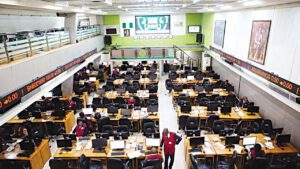S&P rates Seplat Petroleum outlook to stable
By Kayode Tokede
S&P Global Ratings stated that Seplat Petroleum Development Company Plc (Seplat) outlook remained stable, stressing that the company plans to issue benchmark-size senior unsecured notes to refinance its $350 million notes due 2023 may reduce drawings on its revolving credit facility (RCF).
The indigenous oil company launched a note refinancing transaction that will create additional borrowing headroom.
According to S & P Global ratings, “The company intends to issue benchmark-size senior unsecured notes to refinance its $350 million notes due 2023, pay down the used portion of its $350 million RCF ($250 million drawn on Dec. 31, 2020) and settle transaction costs.
“We expect proceeds to be in the $600 million-$700 million range ($650 million estimate used) and that the notes will mature in five years.
“Following issuance of the proposed notes and deployment of the proceeds, Seplat will have full availability of its RCF and extended its debt maturity profile. Our rating on the proposed notes is subject to our review of the notes’ final terms and conditions.
“We forecast leverage will recover in-line with pre-pandemic levels by 2022, supported by slightly improved production and strong oil prices. Supported by stronger oil prices, Seplat will achieve debt to EBITDA of 2.0x-2.5x and FFO to debt of 30%-40% in 2022, in our view.
“We recently revised upward our assumptions for Brent oil from $50/bbl to $60 per barrel (/bbl) for the rest of 2021 and for 2022.
“We estimate that a change of $5/bbl in oil prices would affect Seplat’s EBITDA by about $50 million, all else being equal. Oil prices have been supported by significant OPEC and Russian supply cuts and global stimulus policies that have improved demand and the economic outlook.
“At the same time, we continue to incorporate in our assumption a structural change in the demand for oil stemming from environmental concerns and resulting policies. This is reflected in our $55/bbl price assumption for 2023 and beyond.
”We believe production will be supported by the company’s focus on boosting capital expenditure (capex) on existing assets.
“We estimate the company will deploy $200 million on average per annum in maintenance and expansionary capex over the next three years. At that rate, we estimate that about 75% of capex would go toward drilling new oil and gas wells in existing fields. Seplat was unable to fully invest its planned capex in 2020. Continued investment in growth projects is critical for enabling Seplat to stop the production decline, restore production levels at Eland, and provide upstream gas to the ANOH Midstream Gas (ANOH) business. Seplat owns 50% of ANOH Gas Processing Company (AGPC), a joint venture with the Nigerian Gas Co.
“We believe Seplat will pursue acquisitions in the next 18 months, which could push leverage higher than our forecasts. Seplat’s ability to expand through acquisition will be boosted by additional borrowing headroom after the transaction with the RCF undrawn.
“Nonetheless, we understand that the company will continue a prudent approach, focusing on onshore assets close to existing assets. We believe the company would aim to complete any potential transaction before the next government election in Nigeria, slated for 2023.
“The highly-anticipated Amukpe-Escravos pipeline is expected to start operating in mid-2021, after a series of delays.
“We continue to believe that oil exports will be more resilient to potential pipeline sabotage in the Niger Delta after the launch of the third-party-operated Amukpe-Escravos pipeline, an alternative oil export route.
“The pipeline’s construction suffered further delays in 2020 as a result of the pandemic, and we understand that it is now scheduled to become operational in mid-2021.
“Seplat remains reliant on the Trans Forcados pipeline as its main export route, where it regularly experiences losses due to high down time. The two pipelines—together with the Warri Refinery jetties—should reduce the effects on the company in the event of sabotage. Seplat’s operations were adversely affected by sabotage at the Trans Forcados terminal in 2016.
“The rating on Seplat’s proposed benchmark-size senior unsecured notes is in line with the issuer credit rating.”




